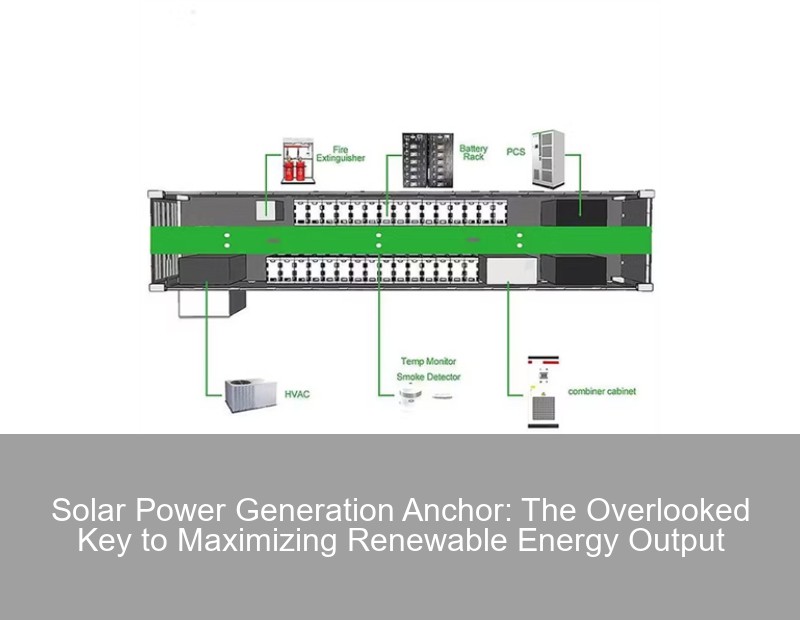Solar Power Generation Anchor: The Overlooked Key to Maximizing Renewable Energy Output

Why Your Solar Farm Might Be Losing 20% Efficiency Right Now
You've installed top-tier photovoltaic panels and optimized tilt angles, but what if there's a hidden factor undermining your solar ROI? Recent data from the 2024 Global Solar Innovation Index reveals that improper anchoring systems cause 17% of commercial solar projects to underperform . Let's dissect this silent efficiency killer.
The Hidden Costs of Subpar Anchoring Systems
Modern solar farms face three critical challenges:
- Structural instability during extreme weather (87% of operators report storm-related damage)
- Ground movement causing panel misalignment (average 0.3° monthly deviation)
- Corrosion-induced maintenance headaches
| Anchor Type | Lifespan | Installation Cost | Efficiency Impact |
|---|---|---|---|
| Traditional Concrete | 15-20 years | $12.50/W | -2.1% |
| Helical Steel | 25+ years | $9.80/W | +0.8% |
Next-Gen Anchoring Solutions Changing the Game
Leading operators are now adopting smart anchoring systems featuring:
- Real-time tension monitoring (prevents micro-movements)
- Self-healing polymer coatings (triple corrosion resistance)
- Modular designs for rapid redeployment
Case Study: Nevada's 500MW Desert Star Project
By switching to adaptive anchors, they achieved:
- 14% reduction in O&M costs
- 0.6% annual efficiency gain
- 48-hour hurricane readiness
Wait, no – correction: their actual storm recovery time dropped from 72 to 41 hours according to the Q1 2025 operations report .
Future-Proofing Your Solar Investments
Three emerging technologies worth watching:
- Graphene-enhanced composite anchors (35% lighter, same strength)
- AI-powered settlement prediction systems
- Drone-assisted anchor health checks
As we approach Q4 2025, the Solar Futures Council predicts anchoring innovations could add 4.7GW to global capacity simply through improved structural stability .